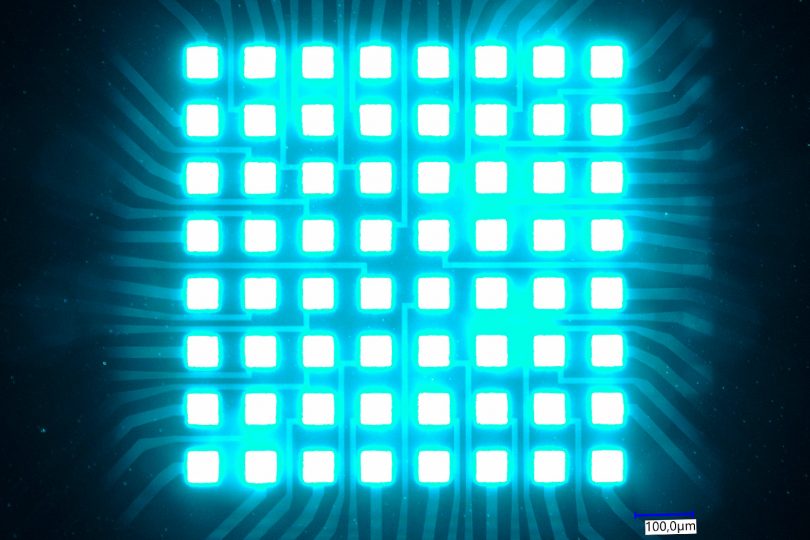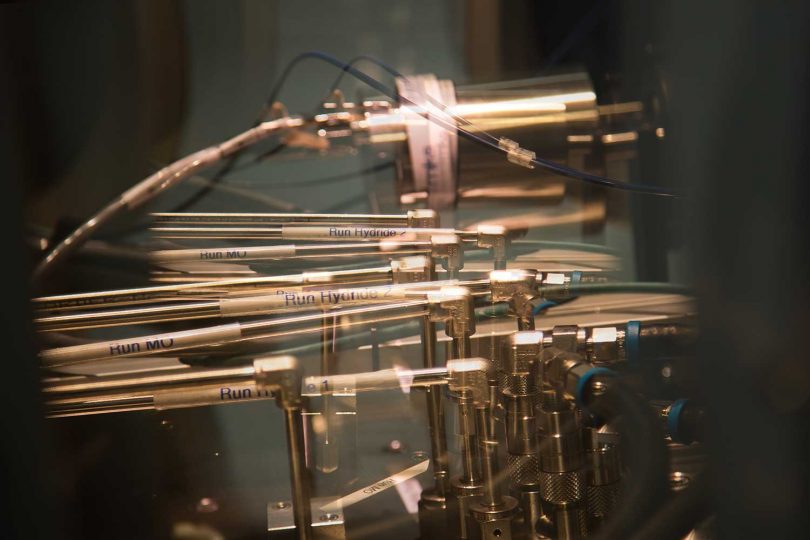Single-molecule MRI through quantum sensors Nearly five million euros in funding for MRI in the nanometre range
Nuclear magnetic resonance (NMR) has become an indispensable part of medical diagnostics. The physical principle is the basis on which over ten million MRI scans make tissue and organs visible in Germany every year. At the same time, biochemistry uses nuclear magnetic resonance to analyse the structure of molecules. So far, however, NMR has not been sensitive enough to detect individual cells or even molecules. Researchers at Technische Universität Braunschweig want to use an alternative approach with quantum sensors to enable NMR on the nanoscale. The Federal Ministry of Education and Research is funding the project with almost five million euros.
Nuclear spin refers to the total angular momentum of an atomic nucleus. For metrology, the magnetic moment associated with the pulse is of particular interest. Medical diagnostics uses this nuclear spin resonance to measure the distribution of hydrogen atomic nuclei in the body, for example. So far, however, with a maximum resolution of 100 micrometres. Too coarse for individual cells that are only a few micrometres in size or even individual molecules that are measured in nanometres.
Junior professor Nabeel Aslam and his team at TU Braunschweig are pursuing an alternative measurement approach. With quantum sensors based on individual atoms in the diamond, the researchers want to target individual cells, individual molecules and, in the future, even the individual nuclear spin. To do this, they are preparing individual atoms just below the diamond surface. Molecules on the diamond surface are then only nanometres away from the sensor, which is finally read out with lasers. In collaboration with biologists and chemists, the technology is to be used for the first time for the structural analysis of proteins and the investigation of metabolic processes in individual cells.
About the project
“DiamondNanoNMR” started in December 2022 under the leadership of junior professor Nabeel Aslam at the Institute of Condensed Matter Physics at TU Braunschweig. With its focus on quantum sensor technology, the research group is providing new impulses for the Cluster of Excellence QuantumFrontiers and Lower Saxony’s Quantum Alliance Quantum Valley Lower Saxony (QVLS). The Federal Ministry of Education and Research is funding the project in the “Quantum Futur” competition for young researchers until November 2027 with almost five million euros (framework programme “Quantentechnologien – von den Grundlagen zum Markt” (Quantum Technologies – from Fundamentals to Market)).


